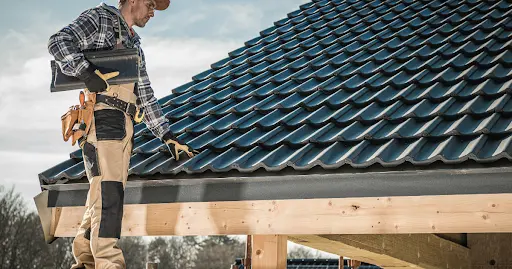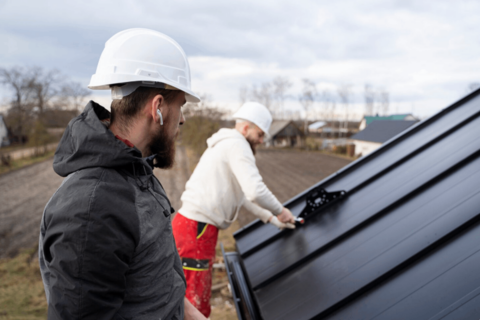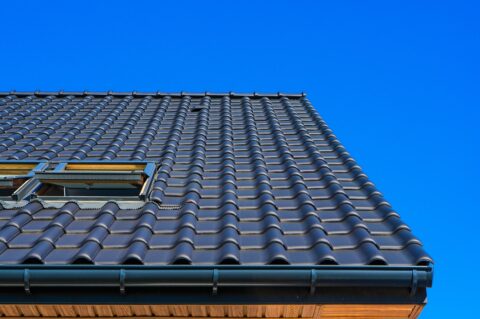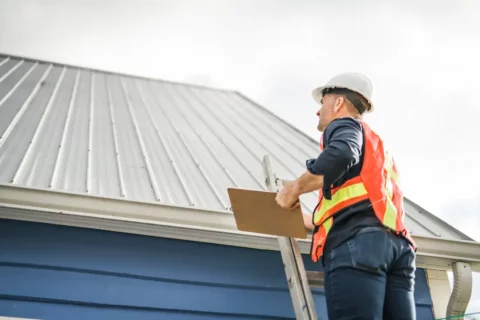
Understanding Roofing Warranties and What They Really Cover
A new roof is a significant investment, one that most homeowners or business owners in Denver, Colorado, expect to last for decades. Whether you’re repairing storm damage or replacing an aging roof, one of the most critical (yet often misunderstood) components of the process is the warranty.
At 303 Roofer, we often hear questions like:
- What exactly does the warranty cover?
- How long does it last?
- Who is responsible for honoring it, the manufacturer or the contractor?
This guide will break down the types of roofing warranties available, what they typically cover (and what they don’t), and what Denver homeowners should ask before signing a roofing contract.
1. The Basics: What Is a Roofing Warranty?
A roofing warranty is a written guarantee that covers certain types of roof-related issues for a specific period. These warranties are designed to give homeowners peace of mind, but their actual coverage can vary significantly depending on the type of warranty, the materials used, and the contractor’s policies.
There are three main types of roofing warranties:
- Manufacturer’s Material Warranty
- Workmanship (Installation) Warranty
- Extended Manufacturer’s System Warranty
Understanding the differences between these warranties is key to protecting your investment.
2. Manufacturer’s Material Warranty
This is the most common type of warranty. It typically comes from the manufacturer of the roofing materials (like shingles or membranes) and covers defects in the materials themselves.
What It Usually Covers
- Manufacturing defects that cause premature wear
- Issues with asphalt shingles, like cracking, blistering, or granule loss
What It Typically Doesn’t Cover
- Improper installation
- Poor ventilation
- Weather damage (hail, wind, etc.)
- Routine wear and tear
Most material warranties last 20 to 50 years, but many are prorated after the first decade, meaning you’ll get less coverage over time.
Tip
Denver’s altitude and fluctuating weather conditions can accelerate wear, making a longer-term warranty beneficial. Look for products rated for extreme UV exposure and temperature swings.
3. Workmanship Warranty from Denver Roofing Companies
This warranty is provided directly by the roofing contractor, such as 303 Roofer, and covers errors made during the installation process.
What It Covers
- Improper flashing
- Incorrect nail placement
- Faulty sealing
- Issues that lead to leaks due to installer mistakes
What It Doesn’t Cover
- Damage from foot traffic, other trades (e.g., HVAC work)
- Weather or natural disasters
- Product failure unrelated to installation
Workmanship warranties are typically 5 to 10 years in length, but high-quality Denver roofers may offer longer terms. At 303 Roofer, our workmanship warranty is detailed in every contract to avoid confusion later.
4. Extended Manufacturer Warranties
Some roofing manufacturers offer upgraded warranties, often called “System Warranties” or “Extended Warranties,” when the roofing system is installed by certified contractors using a complete roofing system (underlayment, shingles, vents, etc.) from the same brand.
Benefits of Extended Warranties
- Coverage for both materials and labor
- Non-prorated terms for 20-50 years
- Often transferable when selling your home
These warranties must be registered after installation and typically require the contractor to be certified (e.g., GAF Master Elite or Owens Corning Preferred Contractor).

5. What Denver Homeowners Should Know About Warranty Fine Print
Roofing warranties aren’t one-size-fits-all. Here are a few things to look out for:
a. Proration Terms
Many warranties reduce in value over time. Ask if the warranty is prorated or non-prorated, especially during the first 10–15 years.
b. Transferability
If you plan to sell your home, make sure the warranty can be transferred to the new owner. Some require transfer within 30–60 days of sale.
c. Required Maintenance
Some warranties require regular inspections or maintenance to remain valid. Be sure to read the maintenance clauses carefully.
d. Exclusions
Warranties often exclude:
- Acts of God (hail, high winds)
- Ponding water on flat roofs
- DIY repairs
- Improper attic ventilation (a common issue in older Denver homes)
6. Common Warranty Myths in Roofing
Let’s debunk a few popular misconceptions:
Myth 1: “My warranty covers everything.”
Truth
Most warranties only cover specific defects or issues. Damage from weather or accidents is usually excluded.
Myth 2: “Any contractor can fix the problem under warranty.”
Truth
Some manufacturer warranties require that certified contractors perform repairs. Otherwise, your coverage may be voided.
Myth 3: “I don’t need a contractor warranty if I have a manufacturer warranty.”
Truth
These warranties cover different things. You need both material and workmanship protection.
7. Roofing in Denver: Why Local Conditions Matter
Denver’s climate creates unique roofing challenges that should factor into your warranty considerations:
- Hailstorms are common, especially in spring and summer.
- High UV exposure can prematurely age roofing materials.
- Snow and ice can lead to ice damming and leaks if improperly ventilated.
Working with Denver roofing companies like 303 Roofer ensures that your warranty includes coverage tailored to local weather patterns and building codes, providing peace of mind.
8. How to Make a Warranty Claim (and What to Expect)
If you suspect an issue with your roof and want to file a warranty claim:
1. Document the issue
Take photos and notes about the problem.
2. Contact your roofer first
A local Denver roofer, such as 303 Roofing, can assess whether the problem is related to the installation or the material.
3. Review your warranty documents
Look for terms about how to report a claim and who to contact.
4. Schedule an inspection
A professional inspection can help determine fault.
5. Follow the process carefully
Manufacturers and contractors will require documentation, which may include proof of maintenance.
9. Choosing the Right Denver Roofer with Solid Warranty Practices
Not all roofing companies are equal when it comes to honoring warranties. When researching Denver roofers, look for:
- Written warranties are in every contract
- Manufacturer certifications (e.g., GAF, CertainTeed, Owens Corning)
- Local experience with Colorado-specific roofing concerns
- A clear explanation of what’s covered and what’s not
303 Roofer is proud to be one of the trusted Denver roofing companies that offers both manufacturer-backed and in-house warranties, explained in plain English.
10. Questions to Ask Before Signing Your Roofing Contract
Before you commit to a roofing project, ask your contractor:
- What warranties come with this roofing system?
- Is the warranty prorated or non-prorated?
- Does the warranty cover both labor and materials?
- Is your workmanship warranty in writing?
- What actions might void the warranty?
- Is the warranty transferable if I sell my home?

Get the Roof and the Protection You Deserve
Protecting your investment starts with understanding your roofing warranty. In Denver’s unpredictable climate, having both a solid material warranty and a trustworthy local contractor can make all the difference.
At 303 Roofer, we help homeowners and businesses get not just a reliable roof, but peace of mind that it’s built to last, with clear, transparent warranty coverage from day one.
Ready to Talk Roofing? Let’s Make Sure You’re Covered.
Whether you need a roof replacement, repair, or a second opinion on a warranty claim, our team at 303 Roofer is here to help. We offer expert guidance, transparent pricing, and dependable warranty support for all residential and commercial roofing projects in the Denver area.
Contact us today to schedule a free consultation or learn more about your roofing warranty options. Visit https://303roofer.com or call us to get started.



